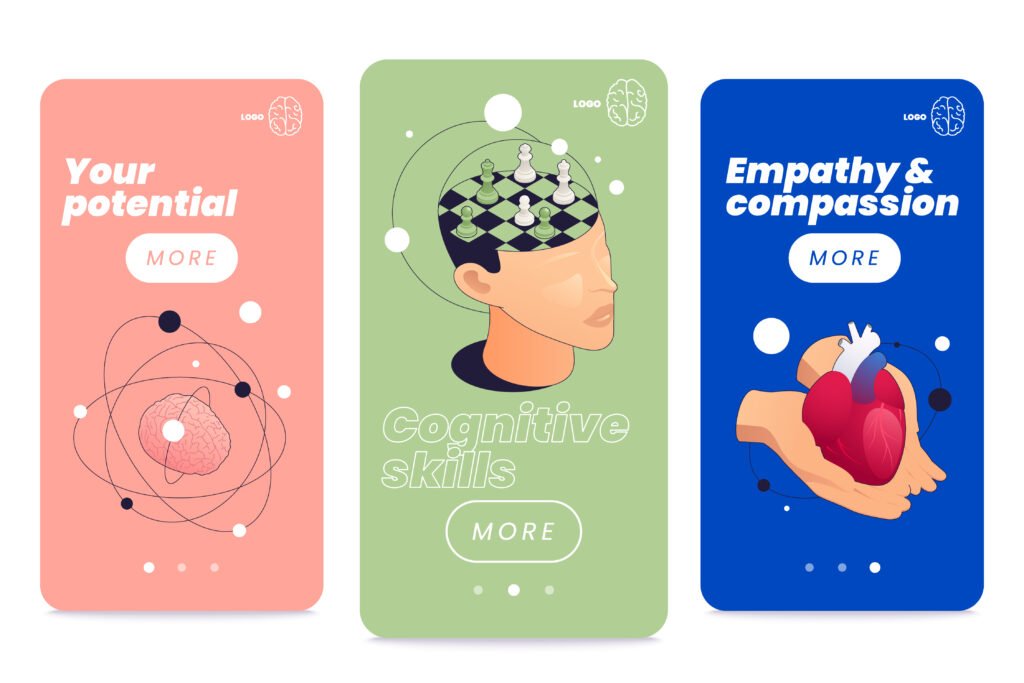
In today’s fast-paced world, success is often associated with technical skills, intelligence, and hard work. However, emotional intelligence (EI), also referred to as emotional quotient (EQ), plays a significant role in how we interact with others, handle stress, and make decisions. The term emotional intelligence was coined by psychologists Peter Salovey and John D. Mayer in 1990, and popularized by Daniel Goleman in the mid-1990s. Since then, it has become a crucial skill in both personal and professional life.
What is Emotional Intelligence?
At its core, emotional intelligence is the ability to recognize, understand, and manage our own emotions, while also recognizing and influencing the emotions of others. It involves the following components:
- Self-awareness: Understanding your own emotions and how they affect your thoughts and behavior.
- Self-regulation: Managing your emotions in healthy ways.
- Motivation: Being driven to achieve goals for personal growth rather than external rewards.
- Empathy: Recognizing and considering other people’s emotions.
- Social skills: Building and maintaining healthy relationships.
Emotional intelligence definition is not just about managing emotions but also about using them to improve decision-making, communication, and conflict resolution.
Why is Emotional Intelligence Important?
It is crucial because it affects every aspect of our lives—from how we behave to how we interact with others. Whether you’re a leader in a company, a student, or a parent, having high EI can improve your relationships, enhance your mental health, and even lead to greater job success.

Emotional Intelligence and Leadership
Strong leaders often have high emotional quotient. Emotional intelligence and leadership go hand in hand, as leaders with high EQ can better understand their team’s emotions, communicate effectively, and inspire others. They are more adaptable and skilled at managing stress, creating a more positive work environment.
Why Emotional Intelligence is Important for Students?
For students, emotional intelligence is just as important as academic intelligence. It helps them navigate social interactions, cope with challenges, and make informed decisions. Developing emotional quotient can lead to better academic performance, as students are more capable of managing stress, focusing on tasks, and maintaining healthy peer relationships.
Emotional Intelligence Examples in Everyday Life
It can be seen in everyday scenarios. For instance:
- Choosing to take deep breaths instead of snapping at a friend on a stressful day demonstrates self-regulation.
- Recognizing that your colleague is upset and offering support showcases empathy.
- Finding the drive to complete a difficult project illustrates how motivation helps you overcome challenges.
Can Emotional Intelligence Be Improved?
The beauty of emotional intelligence is that it’s not a fixed trait—you can improve it with practice and self-awareness. Emotional intelligence can be improved by actively working on your emotional skills, such as mindfulness, empathy, and effective communication. Here are a few ways to boost your EQ:
- Practice Self-Awareness: Regularly check in with yourself to understand your emotional triggers.
- Develop Empathy: Listen to others without judgment and try to see situations from their perspective.
- Manage Stress: Use techniques such as deep breathing or meditation to stay calm under pressure.
- Improve Communication: Practice active listening and respond thoughtfully to others.
How to Improve Emotional Intelligence?
Improving your emotional quotient requires intention and effort, but the results are well worth it. Here are some practical steps to take:
- Reflect on your emotions: After a difficult situation, ask yourself why you felt a certain way and how you handled it.
- Practice active listening: Pay attention to not only what people are saying but also how they’re feeling.
- Develop emotional resilience: Work on bouncing back from emotional challenges, whether in your personal or professional life.
- Seek feedback: Ask others how they perceive your emotional responses and how you can improve.
Why Emotional Intelligence Matters More Now Than Ever?
world that’s becoming more digital and less connected, emotional intelligence has emerged as a crucial pillar of personal development. As technology reshapes how we communicate, the power to forge genuine human connections is becoming a key differentiator, influencing both our relationships and our career achievements.
Whether you’re navigating a high-stakes business meeting or managing your child’s first day at school, having emotional quotient can help you stay calm, focused, and compassionate. It’s a skill that not only leads to a more fulfilling life but also makes you a better partner, parent, friend, and leader.
It is a vital tool that enriches every aspect of our lives. From understanding our own emotions to fostering better relationships with others, it paves the way for success, both personally and professionally. If you’re looking to improve your emotional quotient, remember that it’s a skill you can develop over time with patience, self-reflection, and practice.